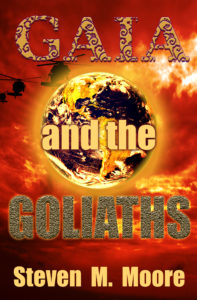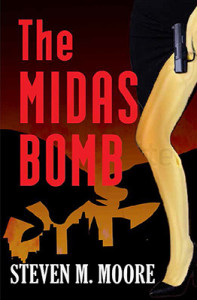Writing what I love to read…

The NY Times article (1/1/2021) about Robert Jones Jr.’s debut novel The Prophets described this self-motivation for the author’s writing. I’ve been doing just that for years! I’ve always shared that mantra for my own writing even before I published my first novel, Full Medical (2006). I’m an avid reader, but I’d found a lot of the fiction I was reading lacking in its treatment of important themes and universal truths about the human condition—the good, bad, and ugly of human existence, if you will. I appreciate fiction that weaves such themes in and around the plots. That’s why genres like space opera, fantasy, and romance aren’t high on my reading priorities. Because modern fiction, especially that from traditional publishers, emphasizes fluff, especially those genres I indicated, which are the epitome of escapism, I decided to create my own alternative, writing what I like to read.
I often stop reading when I realize there’s too much fluff. I had no preconceived notions about Brit-style mysteries—most of them are fluff, but they helped me maintain my sanity during the COVID pandemic. I stopped reading Connelly long ago because, while his books are interesting police procedurals like those Brit-style mysteries, they’re basically escapist literature too without serious themes. It’s easy to make a list of the fluff masters: Baldacci, Child, Grafton, King, Patterson, and so forth write fluff in the sense considered here. Their books can be entertaining, a notch above video games and streaming videos, but I lose interest in them quickly.
Agents and editors, especially those indentured servants of the big publishing houses, encourage authors to write “marketable books.” (Of course, these people can’t really define what this means until after the fact—i.e., only by looking at sales figures—and are completely unable to predict which books might gain the attention of readers because very few books they publish become bestsellers.) Here’s a translation that corresponds to their rejection practices: They mean fluff that avoids all controversial themes. That’s their necessary condition (they have no sufficient conditions—nobody has). We live in a world of controversy, though, so Clancy’s dictum—“The difference between fiction and reality? Fiction has to make sense.”—has an obvious corollary: “…and that’s the way readers can understand reality.”
Perhaps such “controversial books,” i.e. those that aren’t fluff, don’t sell well, so the troglodytes of traditional publishing have a point if literature is only about getting rich off readers. Their exorbitant prices certainly indicate that’s part of their business model. The people who have controlled what’s published for so many years don’t want to lose control of that process or authors. They’d be the first to tar and feather Tina Fey for saying, “Do your own thing and don’t care if they like it.” And they’ve been successful making sure authors accept those creative chains for years. Maybe authors like me are butting our heads against the crumbling walls of the establishment by not volunteering to put on those chains, but I have to write the kinds of books I like to read. That means none of the fluff the troglodytes love because they’re so damn afraid some readers will be upset.
I’ve always been encouraged by a Heinlein quote (basically Fey’s idea expressed in language even troglodytes might understand): “…maybe I should study the market and try like hell to tailor something which fits current styles. But…if I am to turn out work of fairly permanent value, my own taste…is what I must follow.” There are two important concepts here. First, there’s the idea of literary independence: Authors should write the kind of books they love to read and break the traditional publishing establishment’s chains. Second, there’s the possibility that doing so will allow an authors’ literary output to have permanent value, while fluff can never do that.
Both Clancy and Heinlein support Heinlein’s advice. Both wrote in an era when traditional publishing was king. Clancy’s Hunt for Red October almost wasn’t published (the troglodytes almost succeeded); a small, coffee-table book publisher accepted it, and the rest is history. Heinlein, an astronomer, became the second most famous sci-fi writer (Asimov is the most famous, but some of his fame is due to his popular science works), and his books, like Clancy’s, will live on too.
I think I write quality fiction, but my hubris doesn’t take me so far that I believe my works will have “fairly permanent value” like Clancy’s or Heinlein’s, but there’s another corollary to all this discussion: By writing stories with important themes, I can enjoy my writing life free from those artificial chains created by those who worry about a book’s market value. I’m only a slave to my desire to write books like those I love to read, old-fashioned and meaningful stories from an old Irish storyteller.
***
Comments are always welcome.


When fluff isn’t enough….the “Detectives Chen and Castilblanco” Series. Seven novels with important themes woven around mystery, thriller, and police-procedural plots as current as the day I wrote them: The Midas Bomb treats foreign terrorism in NYC. Angels Need Not Apply considers cartels, domestic and foreign terrorism, and right-wing militias. Teeter-Totter between Lust and Murder finds the detectives fighting the illegal arms trade and domestic terrorism. In Aristocrats and Assassins, Castilblanco’s vacation in Europe is interrupted by a terrorist group out to supply themselves with nukes. The Collector considers art theft, human trafficking, and child porn. Family Affairs primarily depicts a battle against domestic terrorism. And Gaia and the Goliaths studies the extent that international energy conglomerates might go to as they battle environmental activists. In this series, the detectives often start locally in NYC but move beyond to national and international action. Lots of interesting and entertaining reading here for you to binge on, folks! Available wherever quality ebooks are sold. Note: Subscribers to my email newsletter have a January and February sale for these novels, but the books’ retail prices are also reasonable.
Around the world and to the stars! In libris libertas!
